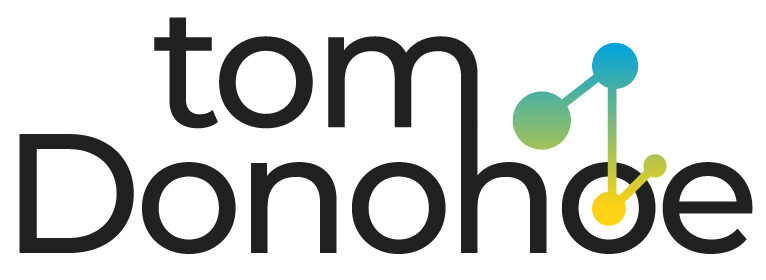What is E-A-T And How it Impacts SEO Strategies

Although there are still controversies about this ranking factor, optimizing your site based on the E-A-T concept can be regarded as good SEO practice. This is because, in the worst-case scenario, you will be increasing your chances of getting more traffic.
In this article, we will talk about what E-A-T is and how it impacts site optimization strategies. We will use tactics to improve this factor on your pages and thus get more visits.
In February 2019, Google itself confirmed that E-A-T is a very important part of its algorithm.
Let’s look deeper into the subject. On Google, there is a document called Quality Ratings’ Guidelines (QRG), which is full of guidelines on Expertise, Authoritativeness, and Trust (E-A-T). It is a set of SEO practices recommended by the search engine itself.
According to the Google Webmasters blog, the company develops these guidelines to help professionals understand what Google wants to see on a website in terms of quality. Google professionals encourage everyone to study the material.
But don’t worry: we did it for you. In an interview for CNBC, Google’s vice president of search, Ben Gomes, said:
“You can look at the ranking guidelines as a direction to where we want the search algorithm to go. They don’t say how the algorithm is ranking the results, but they show fundamentally what the algorithm should do”.
In other words, we can interpret that it is only a matter of time for E-A-T to become highly relevant in Google’s algorithm — and, consequently, in SEO strategies.
What is the impact of E-A-T on YMYL (and what is YMYL)?
According to Google, the first step to a good ranking is to understand the page’s true purpose. This may sound a little too philosophical, but it’s not.
In fact, the page’s purpose is something that you can understand by asking yourself a very practical question: “how do I intend to help visitors?”.
Sites or pages without a clear benefit have less expertise, authority, and reliability and, because of that, are given the worst ranking positions.
As a way to protect users against fraud, apparently, Google values E-A-T even more on sites that fall under the definition of Your Money or Your Life (YMYL). These are medical, legal, or financial websites.
In other words, YMYL sites advise people on important decisions. Usually, they also strive to sell products online — so Google keeps an eye on them.
However, nobody knows for sure which sites Google considers to be YMYL. So, if you offer any guidance or advice to your readers, it’s important to keep an eye on E-A-T — especially if you accept credit card transactions.
In short, Google says that sites containing medical, legal, financial, and other information should come from sources regarded as authorities in their areas.
The pages should also be based on accurate facts and represent scientific consensus (at least in areas in which there is some consensus).
As we have seen so far, Google itself often talks about the important factors behind its ranking.
In other words, there’s no reason to despair as long as you keep yourself updated — both if you already have a page or if you are still developing your website or blog.
In addition to everything we’ve talked about, the world’s largest search engine lists the attributes of high-quality sites and pages. Have you been following the right guidelines? Check it out below! g 3wsz
Characteristics of high-quality pages
According to the Quality Ratings’ Guidelines (QRG), the first feature of a high-quality page is precisely a high level of E-A-T. The complete list includes:
high level of expertise, authority, and reliability, including the E-A-T related to the editor and author of the articles and information on the pages;
a considerable number of high-quality key content;
sufficient information on who is responsible for the site or enough information on customer service if the primary purchase page includes financial transactions;
positive reputation of the website responsible for the page’s main content.
Characteristics of low-quality pages
Among the most common characteristics of pages that tend to rank low are:
inadequate level of E-A-T;
poor quality of key content;
lack of information in the main content about the page’s purpose;
the main content title is exaggerated or outrageous;
ads that distract the reader from the content;
lack of sufficient information about the content creator (Google does not appreciate anonymity);
a reasonably negative reputation of either the website or the content creator.
If a page has several of the above features, it is quite likely to receive a bad ranking.
What is the importance of the author’s E-A-T?
There are two types of E-A-T: the whole site’s E-A-T (or whole brand’s E-A-T) and, if applicable, the website’s authors’ E-A-T. Both are very important!
Google even says that a page should be considered poor if the author or website does not have enough knowledge on the topic.
In other words, there is a difference between a financial article written by an economist and one written by a professional copywriter.
Here at Rock Content’s blog, for example, we have several articles written by the company’s partners themselves.
No matter how excellent the writers are in Content Marketing, nothing guarantees that they really know what they are talking about.
This evaluation encourages ghostwriting. After all, in this case, the website can count on someone to help write the content, but the final word will be from a specialist.
In the end, Google tries to replicate what has already happened offline on the internet. If you’re looking for tax advice, would you rather read an article written by a journalist with a degree or by an accountant with years of expertise and reputation?
Similarly, if you have been diagnosed with an illness, would you like to read articles about your condition written by an SEO specialist? Or would you prefer content created by a doctor who has been treating this condition for years?
In other words, most people want to read articles written by people with E-A-T expertise, authority, and reliability.
It is important to note that this does not diminish the importance of copywriters. On the contrary, it leads them to become more qualified while obtaining the endorsement of specialists on the subject.





